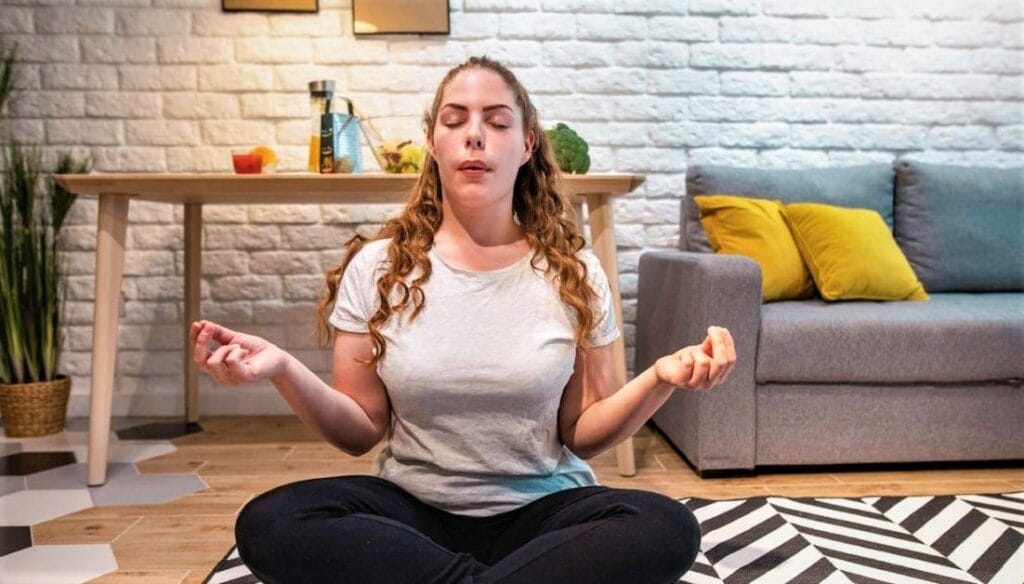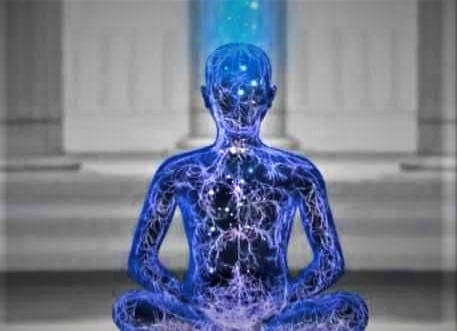Some meditators who think they are not progressing fast will be tempted to change techniques in their search for deep meditation. But this may not be the best choice. Understand that meditation requires patience, time and practice to engage in “deep” to find the answer of following questions.
- How do you feel when you help someone?
- Are you happy and satisfied?
- Do you feel the burst of positive energy as something grows within you?
The mind is an integral part of any meditation practice. Let’s explore the relationship between body and mind through memory. You have to learn to know what you are experiencing without being overwhelmed by thoughts and feelings, including the pleasurable feelings of very deep meditation.
Deep Meditation Guides
Feeling completely at peace with reality during deep breathing meditation sessions signifies that our meditation is becoming more and more anchored.
Remember that there are two main types of short meditation guides.
Relaxation:
During deep relaxation meditation, the scene is usually set: there may be a soundtrack that provides a pleasant, somewhat hypnotic background; Candles or dim lights; Perfumes, etc. The meditator may be sitting or lying down. Most of the people relay on Tibetan monks chanting OM for deep meditation and spiritual awakening as deep meditation techniques.
Awareness:
The meditator is usually seated. The natural result of advanced mindfulness training, deep awareness meditation is experienced when the meditator reaches a comfortable balance between awakening and letting go. Awareness of breathing (or sound, sensations, thoughts, etc.) continues uninterrupted. The mind may notice other stimuli or feelings but has no motivation to grasp them. They slip like autumn leaves.
How to Get into Deep Meditation State?
Here is a simple tip to help calm the body and mind before meditation:
1) Calm the Body and Mind:
Before you begin to meditate, sit down, give yourself a minute to remember your practice’s purpose, and take several deep, full breaths. When exhaling, deliberately let go of any stress or anxiety. As you breathe, plant yourself in the present. Relax the areas where your body and mind accumulates different stresses, including the shoulders, jaw and forehead.
Our mind, body and breath are interconnected. So calming the body and calming the breath will naturally calm the mind as well as deep breathing meditation benefits. The parasympathetic nervous system is activated, resulting in response to stress being controlled.
2) Brain Signs of Deep Meditation:
Our brain is deeply wired to avoid pain and look for pleasure. So, even before your meditation, if you can develop some consistent feelings of security and contentment, you send a signs of deep meditation to your brain that everything is fine, it does not need to be restless. When our mind is happy and content, it will naturally be very calm, introverted, and together.
So after relaxing your body and mind, tell yourself that everything is safe and good at this moment. Realize that you are taking the time to heal, grow, and master your mind. If you believe in God, a short prayer before meditation can help set the focus, holiness and centralized mindset.
Also, if you have practiced loving compassion meditation before, you know that you have the ability to evoke feelings of love and compassion in your heart, and it brings joy to do so. So you can memorize these feelings for a few minutes before meditation or create them within yourself.
Also, to increase your sense of security set aside a safe and quiet space for your meditation and remove anything that might interfere with your practice, such as your mobile or pets.
You need to respect the space you need for your attention and the time you devote to your practice and not make sudden noises or go inside and outside the room. If you cannot find such a place, you can use earplugs or headphones to cover your ears instead.
3) Find Satisfaction:
The brain is designed to seek pleasure and reject pain. Before you start practicing deep breathing meditation, try to find a place of contentment and happiness within yourself. Once your brain picks up the message that you are safe, and everything is fine, restlessness and anxiety naturally subside.
Remember some of the things you are grateful for. Presume to be able to say thank you to everyone who was able to enjoy them. Remember that it takes a while for you to grow. You need to be more available not only to yourself but also to others. Remind yourself of the joy you have already experienced for your purpose and meditation.
4) Find Re-focus:
Meditation trains the mind to understand what is happening at present fully. To enjoy these compliments, we need to have some mental stamina as we train. As we progress, the mind can find re-focus better, with less effort. Meditation helps us to discover the natural pleasures of the present moment. Rather than being determined by the past or worrying about the future, we enjoy every gift and experience we have now, by focusing on the breath and moving with deeper and deeper awareness.
Taking a few moments to focus on your purpose before training can do wonders for your meditation. If you think you do not have good determination or power, do not worry. By setting your purpose in this way, you slowly begin to build ideas.

When your timer marks the end of your meditation session, exit slowly rather than in a hurry, whether or not you have “deep meditation” experiences. You have trained in memory and allowed your mind to settle and gain self-awareness.
Try to extend your calm mood. Move your neck, fingers and arms slowly, eyes wide open. Bring your well-being with you as you continue your other activities.
Reading this article clarifies that you are interested in meditation and its results, experiencing true happiness and well-being. You have come to the right place. Mind works is a non-profit to share the most real and proven meditative guidance for you and our global community.
6) Happiness in Concentration
There will be moments when your mind will focus more on the object of meditation. When this happens, it is important to find happiness in concentration about it. Experience how calm, steady and cohesive the mind is.
The most basic habit of the mind is to seek pleasure and avoid pain and distress. Teaching the mind to appreciate the joy of concentration begins to work harder to increase it by paying more attention.
The more you learn to open and enjoy your meditation, the less the mind has to get restless thinking about other things. This procedure can be very effective when your concentration is still fluctuating. Once the concentration gets solid and stable, there is no need to bother with these thoughts and intentions.
How to do deep meditation at home
Make sure you have a good output or “hot” before training. These include relaxing the body completely, practicing a few rounds of deep breathing, creating a soothing state of mind and a strong intention to go deeper into your meditation.
What happens in deep meditation?
- After sitting on your chair, take three to five full breaths – inhale through the nose and the mouth.
- Breathe in and focus on yourself in the present moment
- Breathing out, emotionally relaxing all the muscles in your body, letting go of all tensions.
- Pay some special attention to relax the jaw, tongue, throat, and forehead.
What does deep meditation feel like?
Different techniques have a different “feel” to it, and it depends on how deep you can go. However, in general, there is a sense of calm, focus, and focus. This is how to enhance your deepest meditative experiences.
In our busy world, we often feel that time is moving too fast. We need to do so much in such a short period of time. Although these feelings are completely normal, they usually lead to anxiety and depression. Taking the time to practice deep meditation will help you cope with today’s furious pace.
As meditation practice develops our most basic axis, it is essential to trust clear, progressive and genuine meditation practices from real guides to get deep theta meditation benefits.



